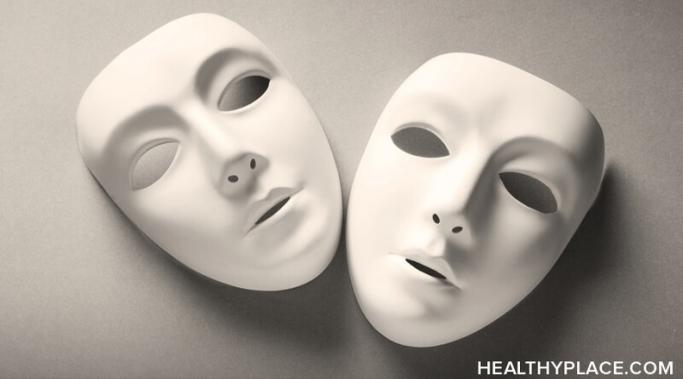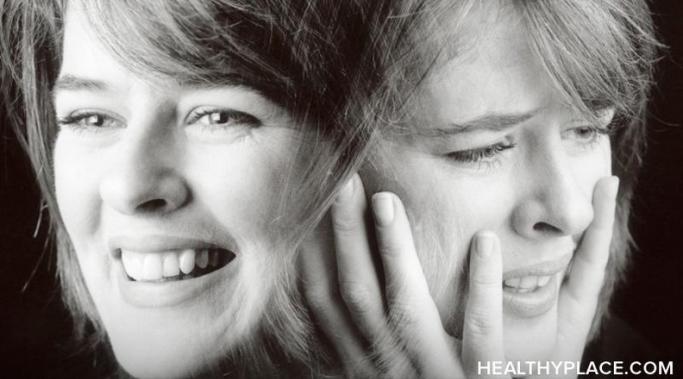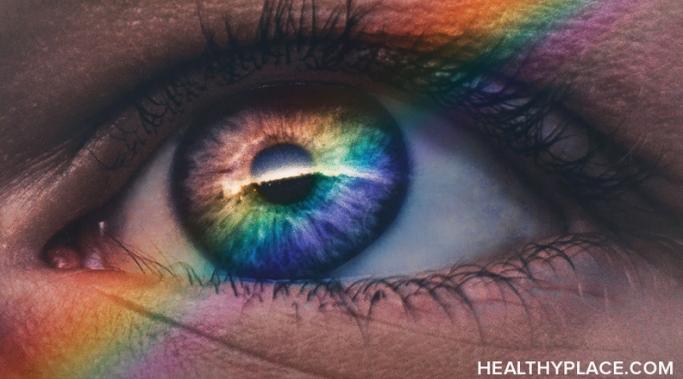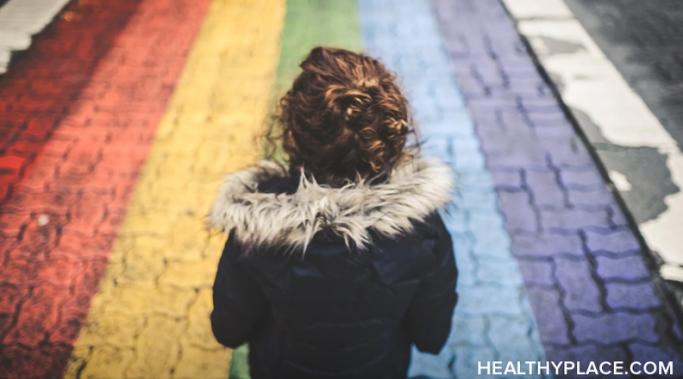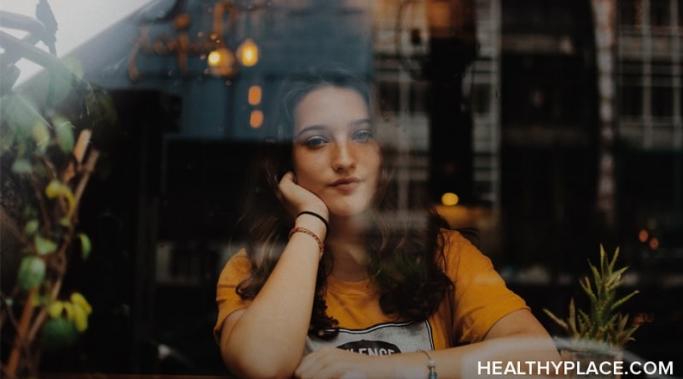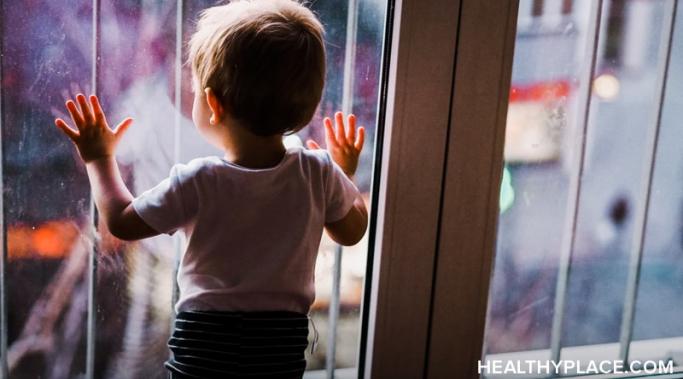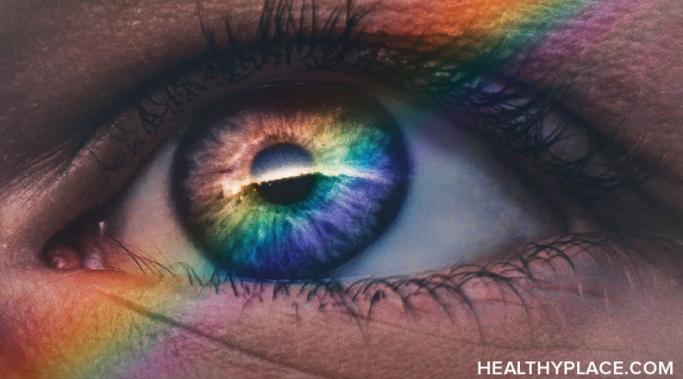The lesbian, gay, bisexual, transgender, queer, intersex, asexual, etc. (LGBTQIA+) community faces mental health challenges specific to their gender and sexuality. Transgender and non-binary individuals (TGNB) often experience mental health challenges such as increased acts of rejection or violence and microaggressions by mental health providers and the general public. These disparities could lead to TGNB individuals suffering from mental health concerns such as anxiety. Learning about those challenges faced by our TGNB specific community may help us check our biases at the door and provide allyship to these individuals.
Mental Illness Stigma - The life: LGBT
I have been hospitalized twice due to my erratic mental health. My gender expression of gender non-conforming (outward expression different from societal gender norms) was not taken seriously during these hospitalizations. I was subjected to uninformed mental health professionals and demeaning mistakes due to the lack of knowledge or respect for my gender non-conforming presentation. The lesbian, gay, bisexual, transgender, queer, intersex, asexual, etc. (LGBTQIA+) community deals with barriers to gender-affirming care regarding mental health and hospitalization often. These are just a couple of ways I was subjected to insensitive mental health care regarding my gender expression.
Pronoun usage in the lesbian, gay, bisexual, transgender, queer, intersex, asexual, etc. (LGBTQIA+) community is important when dealing with mental health concerns. Using proper pronouns when speaking to others about their mental health can provide a safe and comfortable space for them to release their emotions.
My mental health caused me to visit a psychiatric hospital when I was 19 years old. I had never experienced hospitalization for my mental health, nor did I have adequate coping skills going in. In addition to my mental health deteriorating, I had just come out as a lesbian. I was searching to find my place in the lesbian, gay, bisexual, transgender, queer, intersex, asexual, etc. (LGBTQIA+) community. I found ways to cope once in the hospital, though. Read further to see what helped me cope during this dark time in my mental health past.
The new year ahead has caused me to reflect upon the major ways I advocated for my mental health needs to gain back stability; after all, the past year has been rough on my mental health. The year brought about new struggles for my anxiety and new lows in my depression. My posttraumatic stress disorder (PTSD) flared with the added trauma of the pandemic as well. These changes required me to reach out for help. I realized my mental health was affected by my lack of feeling comfortable regarding my treatment when reaching out for help and advocating for my mental health needs.
The holidays can be a difficult time for those struggling with anxiety or other mental health issues. Those in our lesbian, gay, bisexual, transgender, queer, intersex, asexual, etc. (LGBTQIA+) community struggling with anxiety have an added layer of difficulty during the holidays. I haven't celebrated a holiday with my family in many years. This is due to both my sexual orientation as well as my difficulties with mental illness. For those LGBTQIA+ individuals who have no ties to their family or a strained relationship with family, this time of year can be less than joyous. How can we rally to help our LGBTQIA+ mental health community feel more included?
I have identified as a lesbian for as long as I have battled anxiety. I came out to my family and friends 13 years ago, unaware that my sexual orientation would be one of the biggest triggers of my anxiety symptoms. Those in the lesbian, gay, bisexual, transgender, queer, intersex, asexual, etc. (LGBTQIA+) community who also have a mental illness face many obstacles regarding public treatment. The constant worry of judgment and non-acceptance when out in public can lead to heightened anxiety. Holding on to what we can control and educating others about our community can help calm this worry.
Talking is something that has never failed to help me positively navigate my depression. Empathetic conversations with friends are soothing to me in moments of intense sadness related to my depression. Not all conversations with a trusted individual go as planned though.
How to help your child cope with autistic meltdowns is a question for many parents. Recently, on a message board for autistic adults and allies, a parent asked for some advice on helping her child with his autistic meltdowns. While these sorts of groups and message boards weren’t around when I was young, I sure wish my mom had done this sort of thing when I was a kid.
Life as an autistic transgender person was complicated almost from the beginning. As an undiagnosed autistic child, I hadn't considered that there was anything different about me until my sister started pointing it out. Growing up with an opinionated sister telling me what to wear, how to hold hands with boys, what sports to play, and how to act taught me how to camouflage my more autistic traits and keep my queerness to myself. How could I be queer, transgender, or different when I was so busy trying to be well-liked?
